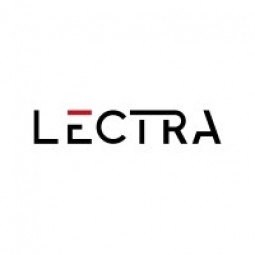Download PDF
Tachi-S Mexico Fulfills Growth Potential with Lectra
Technology Category
- Analytics & Modeling - Predictive Analytics
- Functional Applications - Manufacturing Execution Systems (MES)
Applicable Industries
- Automotive
Applicable Functions
- Process Manufacturing
- Quality Assurance
Use Cases
- Manufacturing System Automation
- Predictive Maintenance
- Process Control & Optimization
Services
- System Integration
- Training
The Challenge
Tachi-S Mexico faced significant challenges in their cutting room, including low efficiency, high fabric consumption, and quality issues. These problems hindered their ability to meet the growing demand from car makers opening plants in Mexico. The company was looking to improve production capacity, reduce operational costs, and minimize quality defects to capitalize on the expected growth. They initially considered acquiring new cutting equipment but were advised by Lectra experts to perform in-depth analyses of their current production processes to identify areas for improvement.
About The Customer
Tachi-S is a leading automotive seating supplier with a 50-year history of creating inspirational products. The company works with major automakers as an independent seat maker, delivering 2.4 million seats to the global market each year. Tachi-S aims to provide an inspiring experience for its customers through its high-quality seats, which are becoming increasingly important as a key element in the presentation of a car. The company operates globally and has a strong presence in Mexico, where it has been experiencing significant growth due to the influx of car makers opening plants in the region.
The Solution
Lectra partnered with Tachi-S Mexico to optimize their cutting processes without the need for additional equipment. Leveraging their expertise in the cutting process and experience in advising automotive companies, Lectra conducted a customized consulting project. They applied lean principles and used assessment methods such as DILO (Day in the Life Of) studies, Value Stream Mapping, and analysis of overall equipment efficiency to identify and eliminate non-value-added activities. This approach enabled Tachi-S Mexico to increase production capacity, improve product quality, and reduce operational costs. The project was divided into three phases, with the first two phases already completed, yielding impressive results.
Operational Impact
Quantitative Benefit
Related Case Studies.

Case Study
Integral Plant Maintenance
Mercedes-Benz and his partner GAZ chose Siemens to be its maintenance partner at a new engine plant in Yaroslavl, Russia. The new plant offers a capacity to manufacture diesel engines for the Russian market, for locally produced Sprinter Classic. In addition to engines for the local market, the Yaroslavl plant will also produce spare parts. Mercedes-Benz Russia and his partner needed a service partner in order to ensure the operation of these lines in a maintenance partnership arrangement. The challenges included coordinating the entire maintenance management operation, in particular inspections, corrective and predictive maintenance activities, and the optimizing spare parts management. Siemens developed a customized maintenance solution that includes all electronic and mechanical maintenance activities (Integral Plant Maintenance).

Case Study
Monitoring of Pressure Pumps in Automotive Industry
A large German/American producer of auto parts uses high-pressure pumps to deburr machined parts as a part of its production and quality check process. They decided to monitor these pumps to make sure they work properly and that they can see any indications leading to a potential failure before it affects their process.









